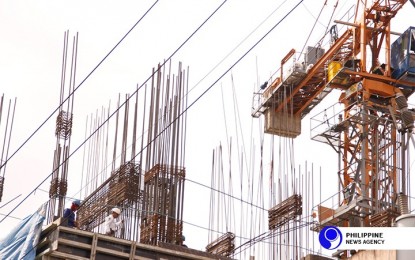
MANILA -- Chinese steel company Panhua Group Co. Ltd. is eyeing to start construction on its 300-hectare integrated steel manufacturing plant in Misamis Oriental by the end of this year to meet the needs of the domestic market as the Philippine government pursues its infrastructure program.
Panhua Group Board Chairman and Chief Executive Officer Xinghua Li said they will invest USD3.5 billion over the next three years for the project’s first phase creating up to 30,000 jobs.
“We have (also) Phase 2 and Phase 3 for this steel plant so there will be more capacity, more production to cater the local market,” he told reporters Monday through an interpreter on the sidelines of Philippines-China (Chongqing) trade and investment forum.
Once completed, Li said the plant located in PHIVIDEC Industrial Estate will have an annual capacity of 10 million tons per year of steel slabs and galvanized color coated steel coil, among others.
He added bulk of their production will supply the local market, particularly the government’s “Build, Build, Build” (BBB) infrastructure program; while a portion going to export markets such as European Union, United States, and Russia.
The Duterte administration planned to spend up to PHP8 trillion to build 75 big-ticket infrastructure projects under the Build, Build, Build program until 2022.
Officials of Panhua Group and Philippine Economic Zone Authority (PEZA) on Monday signed a memorandum of agreement (MOA) facilitating the application, registration, and setting up of the integrated steel mill.
PEZA Director General Charito Plaza bared that Panhua Group has requested for higher domestic sales allowance “because we need steel”, while it also serves the export markets.
Export manufacturing, assembly or processing is among the activities eligible for PEZA registration and incentives, resulting in the exportation of at least 70 percent of production. It is offering domestic sales allowance equivalent to 30 percent of total sales for ecozone locators.
Plaza noted that PEZA board and the President have to approve their request for higher domestic sales allowance.
“(Then,) we allow them to have higher domestic sales,” she told reporters. “We (already) allowed it in biofuel.”
Meanwhile, Philippine and Chinese companies on Monday signed five contracts for projects worth USD 1.1 billion on the sidelines of the trade and investment forum.
These are the USD1-billion strategic cooperation agreement between Chongqing Hongjiu Fruit Co., Ltd. and Davao Eng Seng Food Products Company; the USD30.01-million trading contract between Chongqing Lifan Industry (Group) Import and Export Co., Ltd. and Mitsukoshi Motors Phils. Inc.;the USD30-million trading contract between Qingling Motors Co., Ltd. and Kingling Motors Philippines Inc.; the USD21.75-million trading contract between Pt. Sokonindo Automobile and QSJ Motors Phils. Inc.; and the USD21.13-million trading contract between Chongqing Loncin Import and Export Co. Ltd. and Yingang Motorcycle (Philippines) Ltd. Inc.
Trade Undersecretary Rowel Barba noted the Philippines and China are “deepening their ties both culturally and economically” amid the President's efforts to reach out to non-traditional partners as part of the administration's independent foreign policy
“With this trade relationship continuing to grow stronger every year, China has become our largest trading partner and a major source of investments,” he said.
While the majority of the Philippine and China trade relations do not identify Chongqing, Barba stressed that it is established as the largest industrial and commercial center in southwest China offering huge opportunities in bolstering trade relations between the two countries.
During the forum, Finance Secretary Carlos Dominguez underscored the enhanced relations between the Philippines and China.
“The relationship between our two countries has never been warmer than it is today. It has never been as productive and as optimistic,” he said.
In 2018, China was the Philippines’ biggest trading partner with a total trade of USD52 billion, 15 percent higher than the 2017 level.
Foreign direct investments from China to the Philippines reached USD634 million in 2018, a dramatic 185-percent increase from the previous year, Dominguez added. (PNA)
